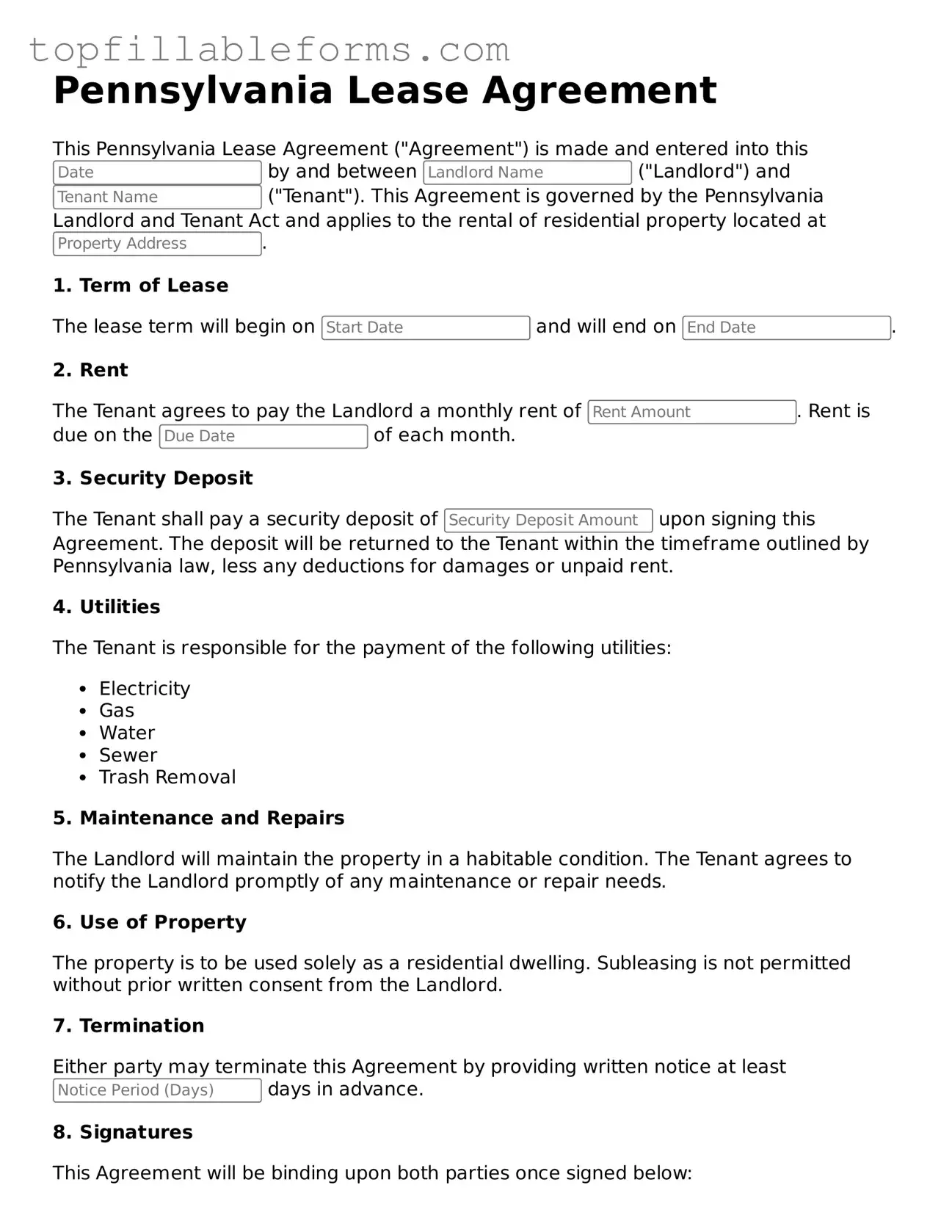Attorney-Verified Lease Agreement Template for Pennsylvania
The Pennsylvania Lease Agreement form is a legal document that outlines the terms and conditions between a landlord and tenant for renting residential or commercial property. This agreement serves to protect the rights of both parties, ensuring clarity and mutual understanding throughout the lease period. Understanding this form is essential for anyone looking to engage in a rental agreement in Pennsylvania.
Open Lease Agreement Editor Here

Attorney-Verified Lease Agreement Template for Pennsylvania
Open Lease Agreement Editor Here
Finish the form now and be done
Finish your Lease Agreement online by editing, saving, and downloading fast.
Open Lease Agreement Editor Here
or
▼ PDF File
